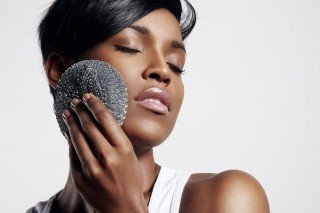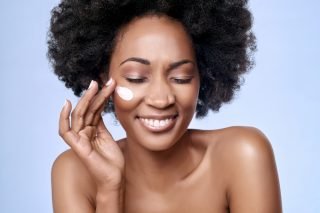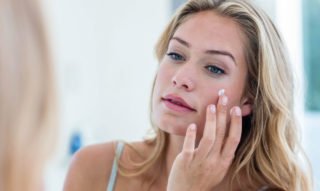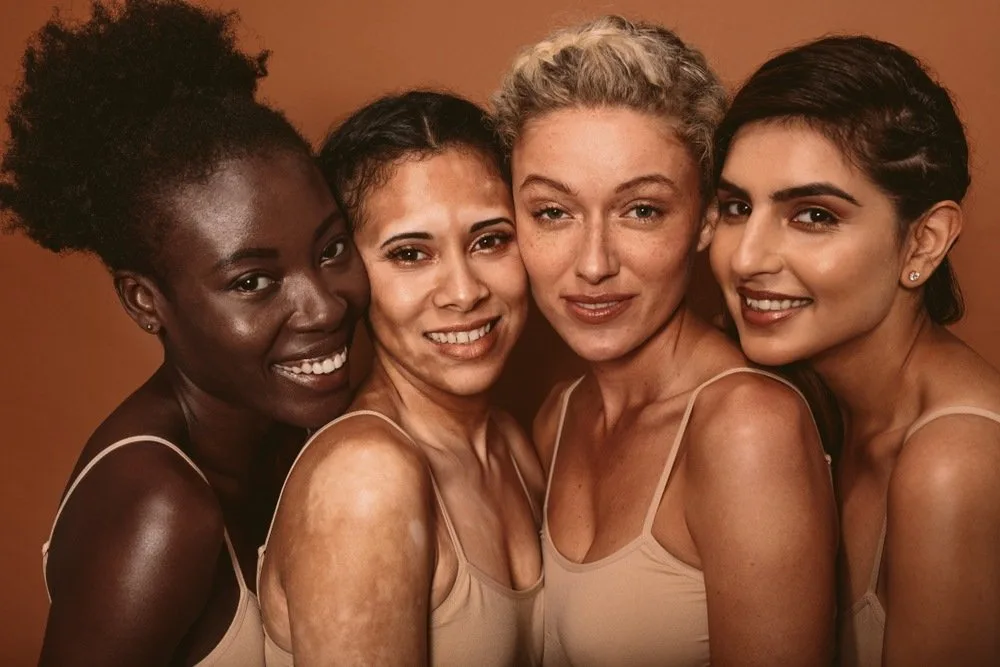In a society that attempts to be as inclusive as possible, there has been a rise in beauty brands attempting to cater to the different skin tones that occupy the world. However, with the whitewashing of wellness and beauty brands, there has been a disdain and disconnect when it comes to skincare for other skin tones. This then has raised the question of what role race plays when it comes to skincare, and whether it’s important to take note of someone’s skin tone as opposed to their skin type.
In fact, an article published in the JAMA Dermatology revealed that black patients preferred, and were more satisfied, when they were in a specialized skin-of-color clinic, and they also preferred a dermatologist of similar race or ethnicity as they believed that said dermatologist understood their specific needs and experiences better.
The dangers of race-based skincare
Unfortunately, it can be quite problematic for darker-skinned women when trying to find and trust products that can work. For one, many beauty products aimed at black women are quite toxic, and ironically, their toxicity is often based on the fact that a lot of these products attempt to enforce a black woman’s affinity to whiteness.
Toxic black beauty
For instance, a lot of creams marketed at black women are marketed in such a way that they perpetuate the idea that said creams can help to lighten the skin. Unfortunately, the skin-lightening ingredients found in these creams can have an adverse effect on their health. 
Hydroquinone is a common bleaching agent, yet research has found that it’s horrible for your health. According to an animal study published in the Critical Reviews in Toxicology journal, hydroquinone may potentially increase the risk of skin cancer. It’s no wonder that it’s banned in Japan, the EU, Australia, and Kenya. It’s important to ensure that your face cream does not contain either hydroquinone or mercury as an ingredient.
Additionally, hair care products that are aimed at straightening black hair also contain toxic ingredients. A study published in the journal Environmental Research tested 18 popular hair products that black women use. The researchers discovered that 80% of the tested products contained high levels of chemicals that have the potential to disrupt the endocrine system – a system responsible for regulating metabolism, reproduction, sleep and growth, and development.
These toxic ingredients include parabens, phthalates, fragrances, nonylphenols, and cyclosiloxanes. It’s important to read the ingredients list when it comes to your beauty products to ensure that they do not contain any of the aforementioned ingredients.
Skin-tone based skin concerns
Every single person on earth has melanin on their skin, as this compound is responsible for giving us our skin color. There are two types of melanin: eumelanin and pheomelanin. Eumelanin is responsible for darker skin and pheomelanin is responsible for lighter skin. Additionally, eumelanin cells provide further protection from the sun’s UV rays.
Now, while skin tone does not translate to skin type, it should be noted that there are a few skin concerns that generally affect one skin tone more than the other. This may be a result of old stereotypes and myths such as “black don’t crack” and “beige don’t age” leading to many people not taking care of their skin as well as they should, thus exacerbating common skin concerns.
Black skincare concerns
Sun damage
Yes, black skin contains eumelanin cells which can help to provide additional protection from the sun. However, this doesn’t exempt people with darker skin from using sunscreen.
Sun damage is sun damage and everybody needs to protect themselves from it. As such, having black skin, while helpful in this sense, isn’t protective enough. Therefore, no matter what skin color you have, you should always apply and reapply a broad-spectrum sunscreen with an SPF50 every day of the year. If you’re worried about a ghost-like appearance that is often associated with most sunscreen, try opting for a sunscreen that is free of titanium dioxide and/or zinc oxide.
Aging
According to findings from the Journal of Clinical and Aesthetic Dermatology, the skin structure of darker skin helps to protect them against premature wrinkling, and this is likely where the notion of black don’t crack was born.
Hyperpigmentation
While hyperpigmentation affects every skin tone, darker skin tones are more prone to it. This is a result of their melanin and pigment structure. In dark skin, these two factors are more responsive to trauma. This then means increased inflammation and, as such, an increased risk of darker, longer-lasting marks and hyperpigmentation.
White skincare concerns
Sun damage
As mentioned, white women are more susceptible to sun damage. This then results in the appearance of premature wrinkles, as well as age spots. That said, it’s important that they practice sun protection at all times.
Aging
Aside from the aging effects of sun damage, white women are more susceptible to drier skin. These two factors can serve to accelerate the aging process. That said, some women may adopt an anti-aging regiment early in their lives when compared to other skin tones.
Asian skincare concerns
According to research published in the International Journal of Cosmetic Science, Asian skin may be more sensitive than other skin tones.
That said, it’s important to read the ingredients list on your favorite skincare products in order to prevent irritation. Common ingredients that may irritate skin include sodium lauryl sulphate (SLS) and Sodium Laureth sulphate (SLES), parabens, fragrances, and even face acids such as glycolic acid.
Color-blind skincare
Yes, there are a few skincare concerns that may be more common in one race than the other. However, this doesn’t remove the fact that we should all adopt a skincare routine that can help to maintain the health of our skin. 
Regardless of your skin tone, it would be advisable to base your skincare routine on your skin type. Every skincare routine needs to include a gentle cleanser, a moisturizer, as well as a broad-spectrum sunscreen. The ingredients found in your cleanser and moisturizer can help address your skin type concerns. Any additional products can be aimed at specific areas of concern that may be brought on as a result of your skin tone.
For example, take a black woman with oily skin. It’s important for her to ensure that her cleanser and moisturizer help to regulate the excess oil in her skin. She can then add additional products that may help address any possible pigmentation.
At the end of the day, it’s important to remember that your skin is unique and there’s no reason to generalize and categorize it in one group. If you really want to keep it healthy, it’s important to understand its needs. Following this, you should then adjust your skincare regime specific to you and your skin’s needs.
References
Gorbatenko-Roth K, Prose N, Kundu RV, Patterson S. Assessment of Black Patients’ Perception of Their Dermatology Care. JAMA Dermatol. 2019;155(10):1129–1134. doi:10.1001/jamadermatol.2019.2063
Helm, J.S, Nishioka, M., Brody, J.G., et al. (2018). Measurement of endocrine disrupting and asthma-associated chemicals in hair products used by Black women, Environmental Research,Volume 165, Pages 448-458,
ISSN 0013-9351, https://doi.org/10.1016/j.envres.2018.03.030.
McGregor, D. (2007) Hydroquinone: An Evaluation of the Human Risks from its Carcinogenic and Mutagenic Properties, Critical Reviews in Toxicology, 37:10, 887-914, DOI: 10.1080/10408440701638970
Rawlings, A.V. (2006), Ethnic skin types: are there differences in skin structure and function?1. International Journal of Cosmetic Science, 28: 79-93. doi:10.1111/j.1467-2494.2006.00302.x
Vashi, N. A., de Castro Maymone, M. B., & Kundu, R. V. (2016). Aging Differences in Ethnic Skin. The Journal of clinical and aesthetic dermatology, 9(1), 31–38.



![women [longevity live]](https://longevitylive.com/wp-content/uploads/2020/01/photo-of-women-walking-down-the-street-1116984-100x100.jpg)










